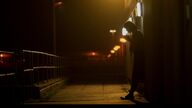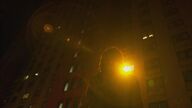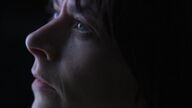I don't know how long it has been since the last time I watched such a picture patiently. To be honest, such a raw, rough, squirming, shaky lens language is really not my cup of tea, and even tasting it occasionally doesn’t add to my love for it at all.
Red Road, Andrea Arnold, Kate Dickie, 2006, Jury Prize at the 59th Cannes Film Festival. If it wasn't for this award, the film would have been shot by me in the first 20 minutes. The controllability of the disc makes the movie-watching event turn into a fetishistic carnival of popular culture again. We can withdraw at any time, use abandonment or silence to fulfill our self-righteous resistance to the elite, wave the flag for Baudrillard, and for ourselves Too lazy to use their brains to dance.
The grey industrial city, the bleak pub streets; the ineptitude of the truck driver, the stereotypically alert face of a woman, the intermittent British rock. All the ambiguity and lag points to a vengeance without warning. The audience is thrown into a huge black hole from the beginning, and either chooses the temptation, accepts the torment, or gives up. It's a pity that the director tried his best to seek this grand redemption, but he didn't seem to have the strength to save the unbearable ending. Fluttering, light and leisurely, without texture.
The only thought left was a feast of "gazing", intertwined with the pleasure of seeing and being seen.
The gaze unfolds in the routine of surveillance and voyeurism: the person who "looks" at the monitor is simultaneously "watched" by the audience through the lens, so the woman inevitably assumes the dual roles of the audience and the audience, while the audience is "watching" the monitor. While the act of voyeurism itself is terrified, it is inevitable to shudder to find oneself in the same position.
In the first 40 minutes, the fragmented image of the woman is completely constructed in "seeing": the streets and crowds in the detector form her other world, and through hostility and indifference to the object of observation, she confirms the image in the audience's mind. : huddled, tense, empty; an empty being, a meaningless state of existence.
Then the plot took a sudden turn, and there was a panoramic stalking, and she seemed to suddenly find meaning, that is, stalking a specific man. The man then becomes the mirror image of the woman, and with him we identify the woman again, and the previously broken guesswork gradually takes shape into a recognizable image: determined, resolute, and purposeful. As for the goal, there is no explanation.
A premeditated love between men and women, a fresh and painful experience, an intercourse between "self" and "other". The identities of women and men are unified, and the audience has become the only "viewer". So far, the director's intention has been completely confirmed, and Foucault's fierceness has been completely eliminated by the woman's entanglement. The only touch came from her shouting to the man in the car: I scolded her on the day she died, and this was the last word I said to her.
A woman's redemption can always come from a story.
Most of the pleasure of staring comes from the secret that can be manipulated, but the world has been solidified into a fixed object, and there is no room for ambiguity. Everything that needs to be said has been said, so the curiosity and creation of the viewers have no foundation in an instant.
The meaning at a glance, entangled for a long time. It was so simple.
boring.
http://stellaly08.blogbus.com/logs/14138004.html
View more about Red Road reviews











